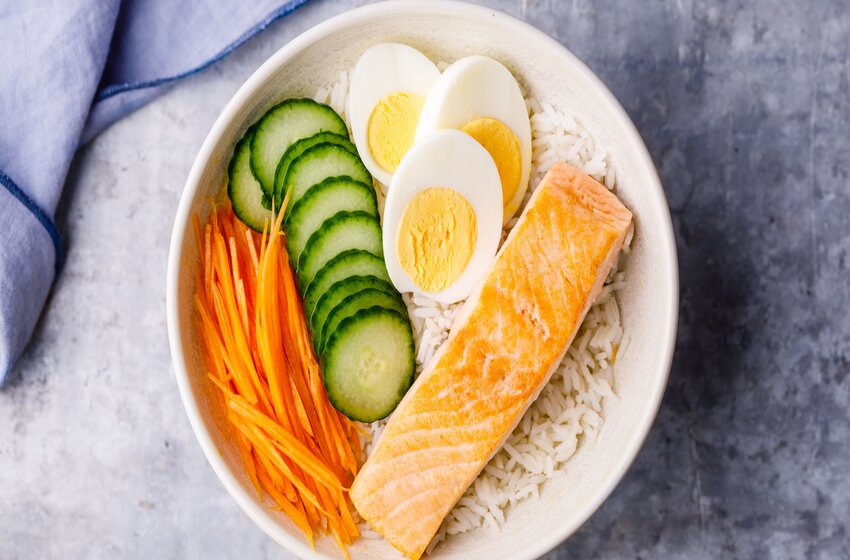
Gastritis Diet: What To Have & Not To For Better Health?
- Lifestyle Health
 Alessia Braun
Alessia Braun- March 12, 2022
- 0
- 9 minutes read
The term “Gastric” implies any condition that relates to inflammation of the lining of the stomach. Eating several foods and avoiding others can help one to manage the symptoms of gastric. It can be chronic or acute. Acute gastritis arrives suddenly and severely whereas chronic gastritis lasts for a longer time. In this article, we will see what a gastritis diet involves and how you can handle this.
Varied factors cause varied types of gastric. The symptoms include:
- indigestion
- abdominal pain
- nausea
- feeling full
For most people, this is a minor issue and will go away after treatment. However, there are some types of gastritis that can produce ulcers or can also increase the risk of cancer. Diet is a vital player for your digestive and complete health. Following a gastritis diet can go a long way in relieving your symptoms of the same and help you feel better.
What To Eat On A Gastritis Diet?
There are some foods that may help you to handle your gastritis and also lessen your symptoms. Diet does not generally create chronic gastric, but having some food can make your health worse. These foods are:
- fried
- spicy
- highly acidic
There are some people who find that the following drinks and foods help ease symptoms of gastritis. The chronic gastritis diet may include:
- high fiber foods, like whole grains, fruits, vegetables, and beans
- low fat foods, like fish, lean meats, and vegetables
- foods with low acidity, which include beans and vegetables
- noncarbonated drinks
- caffeine-free drinks
This remains the same for acute gastritis diets as well. According to some studies, probiotics could aid with stomach complexities that are created by bacteria known as Helicobacter pylori, also called H. pylori.
These bacteria form an infection in the digestive gland, which can lead to stomach ulcers or gastritis. In fact, H. pylori are among the most common causes of gastritis, accounting for 90% of cases.
That is why healthful probiotic foods could be very helpful during gastritis. These include:
- kombucha
- yogurt
- kimchi
- sauerkraut
A gastritis diet is all about eating smaller, more frequent meals that can also help ease symptoms. Some forms of gastritis can make it harder for your body to absorb vitamin B12 or iron, which may lead to deficiencies.
Gastritis Diet: Foods To Avoid
Foods that contain high amounts of fat may worsen inflammation in the lining of the stomach. For some, food allergies can be the reason for gastritis. In these scenarios, identifying and ignoring these foods may prevent and treat the condition.
Some forms of gastritis occur by drinking alcohol too often or drinking too much in a short span of time. In the gastritis diet foods that may irritate the health and make gastritis worse have been mentioned below. The gastritis foods to avoid are:
- acidic foods, such as tomatoes and some fruits
- alcohol
- carbonated drinks
- coffee
- fatty foods
- fried foods
- fruit juices
- pickled foods
- spicy foods
- tea
Gastritis Diet With An Ulcer
Left untreated, some forms of gastritis can ultimately lead to a stomach ulcer, also known as a peptic ulcer. If you already have an ulcer, the types of foods that you should include in your gastritis diet or avoid are similar to those for normal gastritis.
With an ulcer, you should ensure that you get foods filled with nutrients. Following a healthful, balanced diet enables it easier for the ulcer to heal. As per a 2014 research on diet and stomach ulcers, you can include the following foods in your diet:
- milk, yogurt, and low fat cheeses
- vegetable oils and olive oil
- some fruits, including apples, melons, and bananas
- some vegetables, that include leafy greens, spinach, carrots, and zucchini
- lentils, chickpeas, and soybeans
- lean meats
- natural juices
Research also recommends that people who have a stomach ulcer may have to avoid:
- fried foods
- spicy peppers
- chocolate
- caffeinated drinks
- mustard grains
There is very basic research to support these prominent dietary recommendations for gastritis. Your best choice is to consult with a nutritionist or doctor for an individualized gastritis diet that is based on your own symptoms and reactions to some foods. They may give you a customized 7 day meal plan for gastritis that may be helpful to you.
The Bottom Line
The length of time your gastritis will remain once you start treatment depends on the cause, type, and severity. Most of the time, gastritis will cure quickly after starting treatment. Talk with your doctor if the symptoms of your gastritis are severe or last over a week. When considering gastritis diet alterations or new medications, it is ideal to check with a doctor first.

